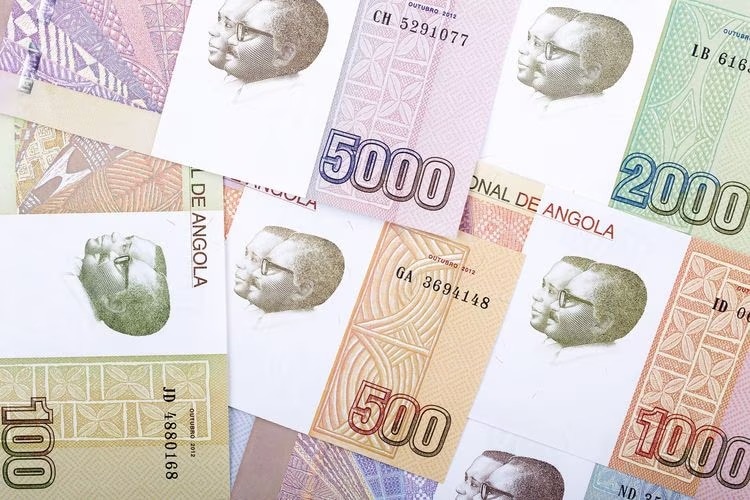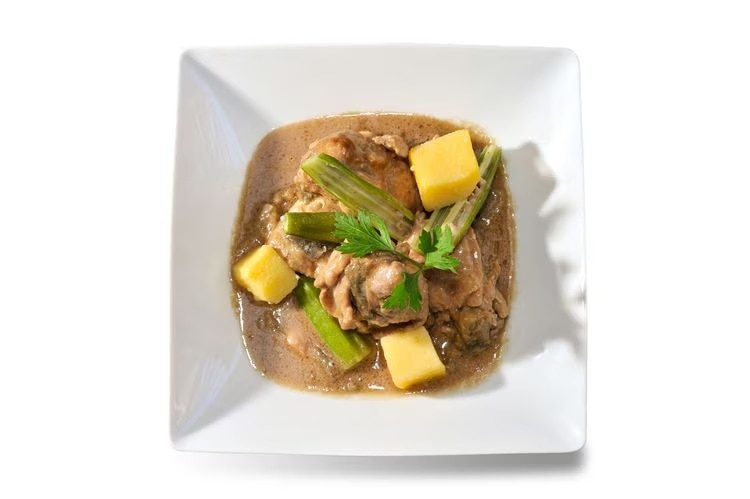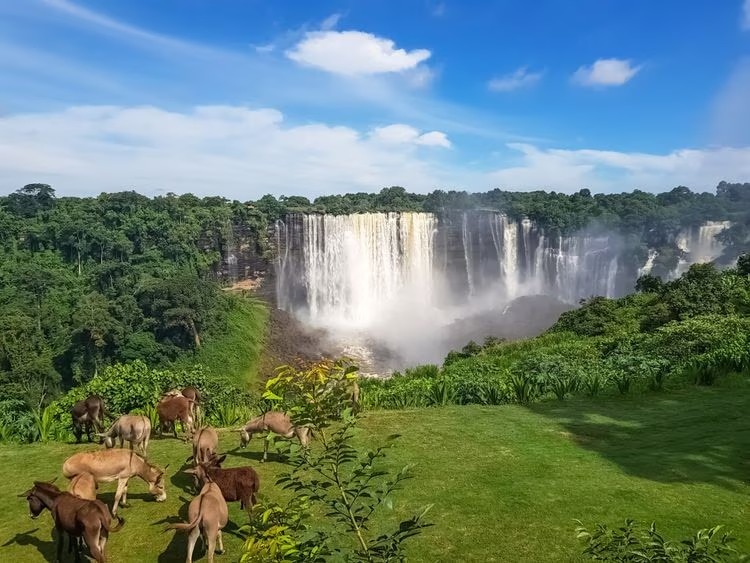Angola Travel Tips and Information
Official Name
Republic of Angola
Capital
Luanda
Population
Country Code
Approximately 21.5 million
AO
Country Code (international calls)
+244
The flight time to Angola is approximately ---- hours. Check the climate, currency, religion, manners, other information of Angola below. Wishing you pleasant travels to Angola.
The Republic of Angola is located in Central Africa and is bordered by Namibia in the south, Zambia in the east and the Republic of Congo, as well as the Democratic Republic of the Congo in the north.
Local Climate / Weather
Angola has a diverse climate, ranging from tropical in the coastal regions to semi-arid in the inland areas. The coastal areas, including the capital Luanda, experience a humid tropical climate with temperatures ranging from 22°C (72°F) to 31°C (88°F) year-round. The rainy season typically lasts from October to April, with the heaviest rainfall occurring between December and February. In contrast, the inland regions, especially in the southern and central parts of the country, experience a more arid climate, with hotter temperatures and less rainfall. ・Dry Season (May to September): This is considered the best time to visit Angola, as the weather is cooler and drier, with temperatures ranging from 18°C (64°F) to 28°C (82°F). It’s ideal for outdoor activities like hiking and visiting natural attractions, especially in the northern and central regions. ・Rainy Season (October to April): While the rain can make travel to certain regions difficult, it’s still possible to explore Angola. The lush landscapes during this time are beautiful, especially in the north. Travelers should be prepared for occasional downpours and humid conditions, especially in the coastal areas.
Currency & Tipping
Currency
The official currency of Angola is the Angolan Kwanza (AOA), which is abbreviated as AOA or symbolized as Kz. Banknotes are available in denominations of 100, 200, 500, 1,000, and 5,000 Kwanza, while coins come in values of 1, 5, 10, and 50 centavos.
Tipping
Tipping is common in Angola, especially in tourist areas, with 10% being the standard in restaurants if service charges are not included. In other services, such as taxis or hotel staff, rounding up the bill or offering small tips of 1,000 to 2,000 Kwanza is appreciated.
Useful Travel Information

Voltage & Electrical Outlets
Angola uses a voltage of 220V and a frequency of 50Hz, with plug types C, F, and M commonly used. It is advisable to bring a universal adapter if your devices use different plug types. Voltage converters may be needed for certain electronic devices that are not compatible with 220V.

Internet Connectivity
Internet access is generally available in major cities like Luanda, with many hotels, restaurants, and cafes offering Wi-Fi. However, the internet speed may vary, and connectivity can be less reliable in rural areas. It’s advisable to purchase a local SIM card, e.g. Unitel, Movicel, or Arficell, with data if you need consistent access during your stay.
Water for Consumption (Drinking Water)
It is recommended to drink bottled or purified water while in Angola, as tap water may not be safe for consumption. Bottled water is widely available in stores and restaurants. Always check the seal before purchasing to ensure the water is properly sealed.
Culture, Religion & Social Etiquette
Culture
Angolan culture is a blend of indigenous, Portuguese, and African influences, with vibrant music, dance, and festivals being an integral part of daily life. Traditional crafts such as beadwork and weaving are highly valued, and family ties play an important role in social structure.
Religion
The majority of Angolans are Roman Catholic, with a significant Protestant community, while indigenous beliefs are still practiced in some regions. Religion plays an important role in daily life, with many public holidays and festivals rooted in Christian traditions.
Social Etiquette
Angolans are generally formal and polite, with respect for elders and authority being highly valued in social interactions. It’s customary to greet people with a handshake or kiss on both cheeks, especially in urban areas, and always use titles when addressing others.
Food Culture
Angolan cuisine is a flavorful blend of African, Portuguese, and indigenous influences, with staples like rice, cassava, and beans featured in many dishes. Street food is popular, with offerings such as kabobs, fried fish, and mutoto (a dish made from cassava and peanuts) found in bustling markets. For a taste of authentic Angola, try local restaurants like Churrasqueira da Ilha in Luanda or Restaurante O Beiral, known for their traditional dishes and vibrant atmosphere.
Major Tourist Attractions & UNESCO World Heritage Sites
Major Tourist Attractions
Angola's most famous tourist attractions include cultural monuments such as Fort San Miguel and the Great Cemetery of Agostinho Neto. However, as the continent of Africa, there are also many nature-related tourist attractions. In Kisumu National Park, located just south of Luanda, the capital city, wild animals once disappeared due to civil war, but NGOs and other organizations have succeeded in relocating animals from South Africa and Botswana. Miradouro da Roua, located 65 km from Luanda, is also a scenic spot with its contrast of steep cliffs and geological formations.
UNESCO World Heritage Sites
There are no registered World Heritage Sites in Angola, but the ruins of Banza Congo, Fort São Miguel, Fort São Pedro da Barra, Fort São Francisco do Penedo, Fort Massanganu, Fort Cambambe, Fort Mxima, and the small fortress of Kikombo are currently on the list, Nossa Senhora da Conceição da Muxima, Nossa Senhora do Rosario, and Nossa Senhora da Victoria, for a total of 11 on the tentative list.
Voice of Travelers to Angola
Egyptair Delivers
I have heard many stories about Angola, especially in Luanda where living is so costly. It was painful trying to secure a visa to visit Angola which took months to obtain. I bought an Egyptair ticket for my trip to Angola. I was having jitters and was very nervous but the flight crew made sure I had the best flight experience. We arrived in Angola safe and sound. I made sure that my return ticket was with Egyptair. And whenever I go for trips abroad, not only to Angola, I always make it a point to get my ticket from Egyptair.
Kindness in Luanda
I lost my return ticket somewhere in Luanda. I was upset over the lost ticket and was thinking what can I do to get back my ticket. All I could think about was my lost ticket and the cost it would entail to purchase another ticket. I have heard negative comments about the peace and order in Angola hence I was a bit hesitant to buy a ticket for this trip. I decided to travel with Kenyan Airlines. My one-way ticket to Angola was not so bad at all. I was so anxious to travel to the hotel alone but the taxi driver was friendly and offered to purchase a return ticket for me.
Angola is Not What I Expected
I have purchased a ticket to travel to Angola. I was not really keen on going to this part of the world because I've heard some negative comments about Angola. My travel agency briefed me on what to expect when I arrived there. Of course, there are some unfriendly faces who "welcomed" me, but good people also exist in Angola. Friendly people showed me the ins and outs of Angola. Your visit is really an adventure so enjoy every minute before you line up to purchase a return ticket.
Travel FAQs
What is the safety situation in Angola? What should I be careful about?
Angola has experienced notable insecurity due to the civil war, but security has improved. However, landmines still remain in some areas, and there is a possibility of robberies targeting tourists. It’s important to exercise caution during your stay.
What is the best season to visit Angola?
The best season to visit Angola is from June to September, when it is the dry season.
Is English widely spoken in Angola?
Portuguese is the official language of Angola, and English is not commonly spoken.
Which airport is the most popular for flights to Angola?
The most popular airport is Luanda International Airport, located in the capital.




